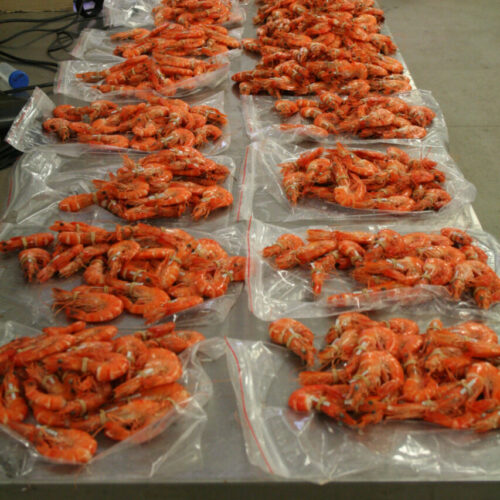
- Reference # A.3.2021044
- Project Status Current
- Timeframe 3 years (2021 - Aug 2024)
- Project manager Anthony Curro
- CRCNA Funding $378,564
- Total project value $809,417
- Project research participant James Cook University (JCU) ; Australian Prawn Farmers' Association Incorporated (APFA)
- Project research co-funder Fisheries Research and Development Corporation (FRDC)
- Research Programs 3. Production and supply chain innovation in Northern Australia
- Location Townsville
- Aquaculture
Summary
Drawing on the findings and data from CRCNA funded biosecurity audit completed last year (2020) researchers at JCU will seek to develop purified strains of the three most common viruses and pathogens detected in wild caught prawn populations and north Queensland prawn farms.
This project will determine the impact of purified, sequenced viral extracts on the survival, growth performance and transcriptome (protein-coding part of an organism’s genome) of tiger prawn (Penaeus monodon). Having purified strains takes a lot of the ‘guess work’ out of the modelling and gives producers – and the industry – better biosecurity management tools for decision making.
The team will also conduct environmental ‘stress tests’ to observe how different environmental pressures may impact the presence or virulence of these common pathogens. Demonstrating the impact of currently occurring pathogens on farmed prawn will highlight the benefits to growth, survival and productivity that can be achieved when farms follow more bio secure operations.
Expected outcomes
This project will deliver outcomes which increase understanding of the impact of specific pathogens, that are frequently present in Australian prawn farms, on production and how the water quality parameters of salinity and temperature influence prawn health and survival in the presence of the target pathogens. It will deliver the following:
1. De-risk the Northern Australian investment landscape by improving the understanding of disease outbreaks in prawn farming by:
- Identifying the viral strains and environmental risk factors that increase the impact of viral infections on farmed prawn production = increased certainty in biosecurity management
- Providing a standardized testing panel of pathogens that can be used to robustly assess treatment and approaches to prevent disease = increased certainty in assessing treatment options
2. Deliver a coordinated approach to sector development:
- through the creation of viral standards that can be applied to robustly test the efficacy of novel anti-viral therapies and assess genetic resistance to viral infection = increased certainty in treatment options
- provide a panel of samples that can be applied to measure the accuracy and precision of service providers that detect prawn pathogens for industry = increased accuracy in detection and management.
3. Delivery research and extension solutions with impact:
- Provide clean-robust data that measures the impact of the target pathogens and environmental factors on production = increased certainty in biosecurity
- Delivers a pathogen testing panel that can underpin future prawn selection programs to identify genetically virus resistant/tolerant lines = increased ability to avoid disease and increase profitability.
4. Deliver strategic research capacity and develop the workforce skills of northern Australians by:
- Provides a valuable collection of data and samples to support the training of industry members and stakeholders in prawn health and disease, e.g., histopathology for training next generation of fish pathologists at for example BQ = increased access to trained workforce and experts
- Produces a valuable library of purified viruses to support future prawn health and disease research = capability and capacity to build upon knowledge with standardized approach.

